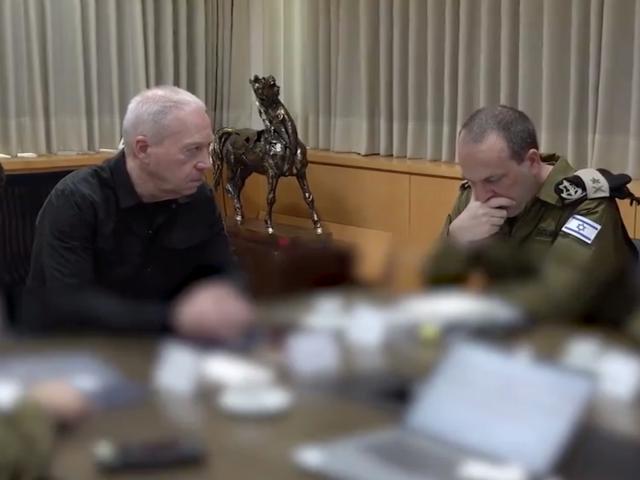In a recent and definitive statement, Israeli Defense Minister Yoav Gallant confirmed that Israel is fully prepared to confront any threats from Iran, underscoring the nation's readiness for a broad range of potential scenarios. This assurance comes on the heels of an intensive strategic evaluation conducted by Gallant alongside Major General Oded Basiuk, head of the IDF’s Operations Directorate, and Major General Aharon Haliva, chief of the Military Intelligence Directorate. The discussions were prompted by Iran's vocal threats of retaliation following the targeted killing of a high-ranking Islamic Revolutionary Guard Corps (IRGC) commander in Syria, an operation Tehran attributes to Israel.
Amid rising tensions, Gallant's comments over the weekend aimed to temper public concern, emphasizing that Israel's heightened state of preparedness should not be misconstrued as panic. He articulated a clear distinction between readiness and fear, pointing out the adversary's weakened position and its subsequent search for a means of retaliation. Israel's defense strategy, he noted, is robust and multi-layered, designed to counter a spectrum of threats.
Israeli Defense Minister, Yoav Gallant has stated following a Military Assessment this morning that Preparations have now been Completed by the Israel Defense Force for a Response to any Scenario which may Develop against Iran. pic.twitter.com/IU6d32Pbpq
— OSINTdefender (@sentdefender) April 7, 2024
This period of heightened alertness was triggered by reports last weekend, including from CBS, indicating that U.S. intelligence had intercepted plans for an Iranian retaliatory strike. Such an attack, speculated to involve Shahed suicide drones and cruise missiles, aims to avenge the significant loss Iran suffered with the death of key IRGC figures in Damascus. The specifics of the timing and targets remain uncertain, but it is suggested that a proportional response might target an Israeli diplomatic site.
A senior official from the Biden administration, speaking to CNN, revealed that the U.S. is bracing for a potential significant attack from Iran, believed to be imminent. This sentiment is shared by Israeli intelligence, which also perceives a direct threat to both Israeli and U.S. interests.
In Imam Square (Naksh-e Jahan Square) in Isfahan, Iran:
— Shiri_Sabra (@sabra_the) April 6, 2024
The color of the water was changed to BLOOD RED and Israel's "David Star" emblem was placed in the middle of the pond. pic.twitter.com/Xd291kiNo7
In an interesting turn, two high-ranking Iranian officials disclosed to The New York Times that Iran's military readiness has been ramped up, indicating a direct response to the assassination, aiming for deterrence. Correspondingly, Israeli security analyses concur with this assessment, anticipating that Iran might forgo utilizing proxy forces like Hezbollah for its retaliatory strike.
Further complicating the geopolitical landscape, the Biden administration noted that the U.S. had no prior knowledge of the Israeli operation in Damascus that resulted in the death of Quds Force commander in Syria and Lebanon, Hassan Mahdawi. The U.S. has communicated directly with Iran, disassociating itself from the attack, in an effort to forestall any aggression towards American facilities.
The US is actively preparing for a "significant" attack by the Islamic Republic against Israel during the next week. According to an American source, the attack is "unavoidable".https://t.co/qbGmc0aXVB
— Adam Milstein (@AdamMilstein) April 7, 2024
The issue of Iranian retaliation and the broader regional security situation was a key topic in a recent discussion between Prime Minister Benjamin Netanyahu and President Joe Biden. White House National Security Council Spokesman John Kirby highlighted Biden's firm commitment to Israel's security, asserting that the U.S. stands ready to support Israel against Iranian threats. This dialogue underscores the strategic partnership between the U.S. and Israel, as both nations navigate the complexities of maintaining stability and security in the face of Iranian provocations.


